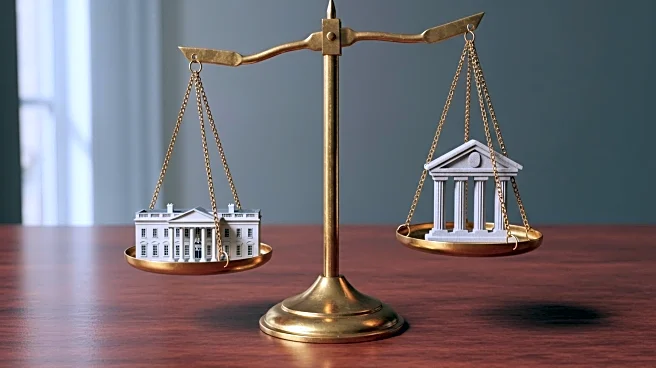What's Happening?
President Trump has publicly criticized Goldman Sachs CEO David Solomon, suggesting he hire a new economist after the bank's research indicated that consumers will bear the majority of costs from increased tariffs. This criticism follows a report by Goldman Sachs economists, which estimated that the share of tariff costs absorbed by American consumers could rise significantly by October. Trump, in a Truth Social post, dismissed the bank's findings, asserting that tariffs have not caused inflation or other economic issues, but rather have increased Treasury revenues. The report by Goldman Sachs, authored by chief economist Jan Hatzius, aligns with other financial institutions' warnings about potential consumer impacts from tariffs. Despite these predictions, recent inflation data showed a modest increase in consumer prices.
Why It's Important?
The exchange highlights ongoing tensions between the Trump administration and major financial institutions over economic policy and its impacts. The disagreement underscores differing perspectives on the effects of tariffs, a key component of Trump's economic strategy. If consumers do bear the brunt of tariff costs, it could lead to increased living expenses and affect consumer spending, a critical driver of the U.S. economy. The situation also reflects broader debates on trade policy and its implications for inflation and economic growth. Financial institutions like Goldman Sachs play a significant role in shaping economic expectations, and their analyses can influence market behavior and policy decisions.
What's Next?
It remains to be seen how Goldman Sachs and other financial institutions will respond to Trump's criticism. The bank has not commented on the president's remarks, but the ongoing debate may prompt further analysis and discussion among economists and policymakers. As tariff policies continue to evolve, stakeholders will closely monitor their economic impacts, particularly on consumer prices and inflation. The situation may also influence future trade negotiations and economic strategies, both domestically and internationally.










